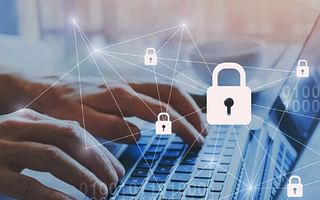Caleigh Gutkowski is a distinguished cybersecurity expert with over ten years of experience in the technology sector. Her expertise lies in detecting and preventing network intrusions. Caleigh is renowned for her talent in demystifying intricate security notions for the ordinary user.
What is Cybersecurity and How Can It Protect Your Digital Assets?
Cybersecurity is a crucial aspect of our digital lives, especially in today's interconnected world. It refers to the practice of protecting computer systems, networks, and digital assets from unauthorized access, data breaches, and other cyber threats. In simpler terms, it's all about safeguarding your valuable information and resources from cybercriminals.
Now, let's dive deeper into how cybersecurity can protect your digital assets:
1. Preventing Unauthorized Access: Cybersecurity measures, such as firewalls, secure authentication protocols, and encryption, help prevent unauthorized individuals from gaining access to your digital assets. By implementing strong passwords, multi-factor authentication, and access controls, you can ensure that only authorized users can access your sensitive data.
2. Protecting Against Malware: Malware, including viruses, ransomware, and spyware, can wreak havoc on your digital assets. Cybersecurity solutions, such as antivirus software and intrusion detection systems, help detect and remove malicious software before it can cause damage. Regularly updating your software and operating systems is also crucial in staying protected against the latest threats.
3. Safeguarding Data Privacy: Cybersecurity measures play a vital role in protecting your personal and sensitive information. Encryption techniques, secure data storage, and data loss prevention mechanisms ensure that your data remains confidential and cannot be accessed or tampered with by unauthorized individuals.
4. Preventing Data Breaches: Data breaches can have severe consequences, including financial loss, reputational damage, and legal implications. Cybersecurity practices, such as regular vulnerability assessments, penetration testing, and network monitoring, help identify and patch potential vulnerabilities before they can be exploited by cybercriminals.
Cybersecurity Practices to Prevent Data Breaches
| Cybersecurity Practice | Purpose | Benefits | Potential Impact if Ignored |
|---|---|---|---|
| Regular Vulnerability Assessments | Identify and evaluate security vulnerabilities in a system | Helps in early detection and remediation of security vulnerabilities | Increased risk of data breaches due to unidentified vulnerabilities |
| Penetration Testing | Simulate cyber attacks to evaluate the security of a system | Identifies weak points and validates the effectiveness of existing security measures | Potential for undetected security weaknesses, leading to data breaches |
| Network Monitoring | Continuous observation of a network to detect anomalies, failures, or unauthorized access | Allows for immediate response to security threats, minimizing potential damage | Delayed detection of cyber threats, increasing the severity of data breaches |
5. Ensuring Business Continuity: Cybersecurity is not only about protecting your digital assets but also about ensuring the continuity of your business operations. Implementing robust backup and disaster recovery plans can help you recover quickly from cyber incidents, minimizing downtime and potential losses.
6. Protecting Intellectual Property: Intellectual property, including trade secrets, patents, and proprietary information, is a valuable asset for many organizations. Cybersecurity measures, such as access controls, encryption, and digital rights management, help safeguard your intellectual property from theft or unauthorized disclosure.
7. Complying with Regulations: Many industries have specific regulations and compliance requirements regarding data security and privacy. Implementing cybersecurity measures ensures that you meet these legal obligations, avoiding potential penalties and legal consequences.
In conclusion, cybersecurity is essential for protecting your digital assets from a wide range of cyber threats. By implementing robust security measures, regularly updating your systems, and staying informed about the latest cybersecurity trends, you can significantly reduce the risk of cyberattacks and safeguard your valuable information and resources.
Remember, cybersecurity is an ongoing process, and staying proactive is key to maintaining a strong defense against evolving cyber threats. Stay informed, implement best practices, and regularly review and update your security measures to keep your digital assets safe and secure.















